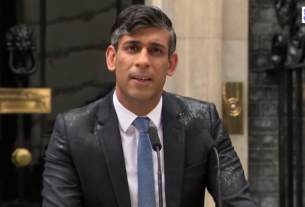In a stunning development in UK politics, Reform UK, led by Nigel Farage, has made significant gains in the recent local elections held on May 1, 2025. The party secured over 670 council seats and gained control of 10 councils, marking a substantial increase from its previous standing of 128 seats and no councils. This surge positions Reform UK as a formidable force, challenging the traditional dominance of the Labour and Conservative parties.
The local elections, which included 1,641 council seats across 23 county, unitary, and metropolitan councils, as well as six directly elected mayors, saw Reform UK place first with a projected national vote share of 30%. Labour followed with 20%, the Liberal Democrats at 17%, and the Conservatives at 15%. Notably, the elections marked the first time that Labour finished fourth in a local election, reflecting a significant shift in voter sentiment.
Reform UK’s platform, which emphasizes opposition to illegal immigration, reduced public spending, and a rollback of diversity, equality, and inclusion initiatives, has resonated with a significant portion of the electorate. Party chair Zia Yusuf has stated intentions to resist housing asylum seekers in council areas under Reform UK’s control, utilizing legal measures such as judicial reviews and planning laws to challenge asylum accommodations.
The party’s rise has prompted discussions about its potential role in the upcoming general election. With voters nearly evenly divided among the three main political blocs Labour, Conservatives, and Reform UK the first-past-the-post electoral system could make Reform UK a kingmaker in the formation of the next government. Analysts suggest that an alliance with either Labour or the Conservatives may be necessary to secure a majority, positioning Farage and his party as pivotal players in the nation’s political future.
As Reform UK transitions from a protest movement to a governing entity, its ability to deliver on campaign promises and manage local governance will be closely scrutinized. The coming months will be critical in determining whether this surge represents a lasting transformation in British politics or a temporary shift in the political landscape.




